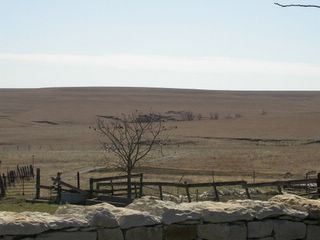Clitical
You may have noticed that the "About Me" section of this webpage refers to cliticizations. One of my many, many readers (two "many"s ~ 2) e-mailed today to ask exactly what is a cliticization. In the interests of public education I thought I'd share my response with the rest of you. It follows:
Well, it's er... maybe nothing. Technically a clitic or clitical is an independent morpheme in speech like the "n't" in "don't" It has no meaning on it's own, but a distinct linguistic role in combination with other words. Some clitics, especially articles, are real words on their own, but they are pronounced as a single word like "an apple" is pronounced "anapple." I think cliticization therefore is the process of mushing the words together.
When I was putting my blog together, I was searching google for pictures of forestry edge effects. I saw a page talking about linguistic edge effects which were basically just a different way to talk about cliticization. Of course being of high-academic mind, the word "clitic" seemed dirty to me. I was also at the time under the mistaken impression that junk words like "um" and "like" were clitical, hence the line in my "about me" profile. In fact, the way I have it written, with commas around the "um", completely decliticizes it. I'd like to claim that there is an irony there that I was shooting for, but in fact I just misunderstood what I was trying to get across.
So there you have it.
*Thanks to Bobby Squidhead for the inspiration to post this!
Well, it's er... maybe nothing. Technically a clitic or clitical is an independent morpheme in speech like the "n't" in "don't" It has no meaning on it's own, but a distinct linguistic role in combination with other words. Some clitics, especially articles, are real words on their own, but they are pronounced as a single word like "an apple" is pronounced "anapple." I think cliticization therefore is the process of mushing the words together.
When I was putting my blog together, I was searching google for pictures of forestry edge effects. I saw a page talking about linguistic edge effects which were basically just a different way to talk about cliticization. Of course being of high-academic mind, the word "clitic" seemed dirty to me. I was also at the time under the mistaken impression that junk words like "um" and "like" were clitical, hence the line in my "about me" profile. In fact, the way I have it written, with commas around the "um", completely decliticizes it. I'd like to claim that there is an irony there that I was shooting for, but in fact I just misunderstood what I was trying to get across.
So there you have it.
*Thanks to Bobby Squidhead for the inspiration to post this!

